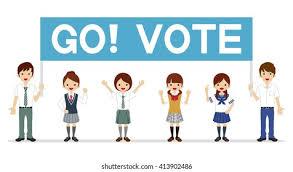
The lesson that we need before our children learn
In the election season, it would be imperative to see what we teach our students in grade 9 to evaluate democracy, and let’s see if, as adults, we are adhering to what we are teaching our students. The NCERT social science textbook of grade 9th, Democratic Politics Part-I, talks about the following four essential conditions for a democracy:
1. Major decisions by elected leaders
2. Free and fair electoral competition
3. One person, one vote, one value
4. Rule of law and respect for rights
In the book, examples from around the world illustrate how a country may hold elections but not truly be democratic. For instance, to illustrate the first point, the book brings up an example from Pakistan, where elections happen regularly and a democratic government is formed, but major decisions are taken by the military establishment. This means rulers elected by the people don’t make all the major decisions. Is there a threat to this fundamental principle of democracy in our country as well? Is there an organization that has the authority to exercise power over our elected government?
Regarding free and fair electoral competition, an example from Mexico is cited. Until 2000, every election was won by a party called PRI (Institutional Revolutionary Party). Opposition parties did contest elections but never managed to win. The PRI was known to use many dirty tricks to win elections. All those employed in government offices had to attend its party meetings, and teachers of government schools used to force parents to vote for the PRI. Media largely ignored the activities of opposition political parties except to criticize them. Sometimes polling booths were shifted at the last minute, making it difficult for people to cast their votes. The PRI spent a large sum of money on its candidates' campaigns. Should we consider the elections described above as examples of people electing their rulers? Reading these examples, we get a sense that we cannot. (NCERT, 2023) Is there a similar threat in our electoral process?
"One person, one vote, one value" means that choice and opportunity are available to all people on an equal basis. India holds a unique place in democratic traditions in the world, and we truly value the principle of one-person-one vote, one value. However, some countries do not value this principle, as illustrated by examples from Fiji and Estonia. Estonia has made its citizenship rules such that people belonging to the Russian minority find it difficult to get the right to vote. In Fiji, the electoral system is such that the vote of an indigenous Fijian has more value than that of an Indian-Fijian.
"Rule of law and respect for rights" is crucial in democracy. The textbook explains this with an example from Zimbabwe, where opposition party workers were harassed and their meetings disrupted. Public protests and demonstrations against the government were declared illegal. There was a law limiting the right to criticize the President. Television and radio were controlled by the government and gave only the ruling party’s version. Independent newspapers existed, but the government harassed journalists who went against it. The government ignored some court judgments that went against it and pressured judges. Do we also hear similar stories from our surroundings?
The NCERT textbook of social science leaves us with these four golden standards to evaluate democracy, and who is the examiner? Of course, we all are! And who has to correct it if we find problems during our evaluation? It’s us!
- Log in to post comments
